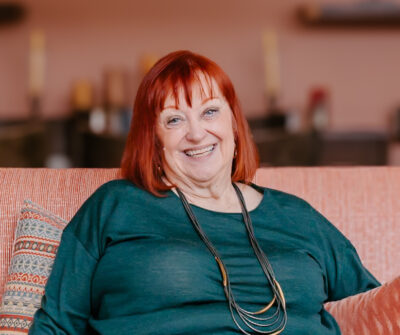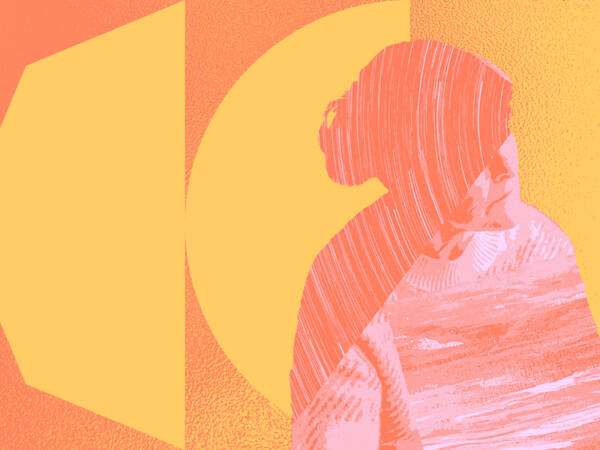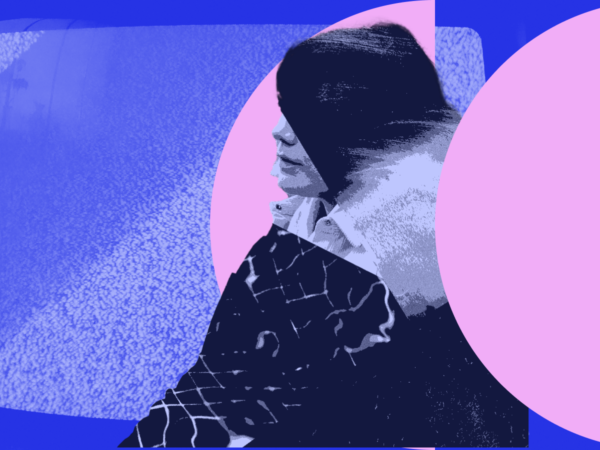Survivor Story
Forgiving Our Mothers
Most of the time, our mothers were not perpetrators. And yet, they’re the ones we can’t forgive?
Between 2004 and 2008, I was working with Dr. Joanne May, head of Behavioral Health at Advocate/Illinois Masonic Hospital in Chicago. With her assistance, I was funding a program of Incest Survivors Groups that met weekly at the hospital. It was an excellent program, and it was the only program of its kind at the time, since the groups were administered in a hospital setting, with support services for dual diagnosis and treatment.
Toward the end of the program, Dr. Joanie told me something that rocked me back on my heels, and has resonated with me ever since. Especially during the month of May, when I have to deal with Mother’s Day. She told me that while many of the group participants had been sexually abused by their fathers, it was their mothers they found hardest to forgive.
Let’s think about that for a minute. Most of us, as survivors of incest, were violated as children by people we trusted. Most of the time, our mothers were not perpetrators. And yet, they’re the ones we can’t forgive?
I’ve said this before and I’ll say it again. Mothers are human beings. They are not saints or angels. We put them high up on this ridiculous pedestal, and then we’re surprised when they fall off.
I spent most of my adult life trying to come to peace with my own mother. She died in August of 2017, having reached her goal of living past 100 and outliving all her siblings. I was her caretaker for four long and difficult years while she lived in a full-time nursing facility, and gradually declined into a person I didn’t recognize. I’d like to say I forgave her before she died, but that wouldn’t be the truth. It took at least another five years before I could say that I forgave her.
I think back to the eight-year-old girl, who’d lost both a brother and a father at the age of 4, coping with all the life changes that came with a move from Connecticut to Indiana, and with a new stepfather that shouted at both Mom and me, and hit me frequently when he was raging.
I think back to all those moments in the aisles of drug stores and supermarkets, combing the stands of greeting cards with Mother’s Day sentiments that seemed to come from another planet. I didn’t expect to find any that expressed my own complicated feelings, of course, but wasn’t there something besides bunnies and flowers and “I love you, Mom?”
Of course, I loved my mother. She was all I had. But she married an abusive man, and expected me to deal with him the same way she did: by being silent, and staying away from him as much as possible. But when I hid in my room, I got punished for that too.
Our move back to the town where my mother grew up put me in reach of her dysfunctional family, including an older cousin who sexually abused me over the next seven years. Years in which I said nothing to anyone about what was happening. Years in which I struggled to make friends, to deal with some health issues, including anorexia, and to be bullied in school for high grades and the inability to fit into my social environment.
While my mother was not an active perpetrator, she set up the circumstances in which I was sexually abused.
Because she was reluctant to leave me with a babysitter, she often took me to my aunt’s home in a neighboring town. Sometimes we spent a night or two there. There were only two bedrooms, so she and my aunt shared one, and I shared the other with my male cousin, who was six years older than I. He abused me every chance he got. It began with pornography, continued onward to genital touching, and finally to oral sex. It only ended when I was old enough that my mother decided I could stay home alone.
Like many children, I had no idea I was being sexually abused. I thought my cousin and I were playing games. When reality hit me during my late 30’s and early 40’s, I spent years in and out of therapy trying to understand what had happened to me. And it always came back to my mother.
Why had she put me in that bedroom with him, time and time again? Had she and my aunt both been sexually abused in their family? Were they carrying on a legacy, creating a similar environment for their children as a way of normalizing their own history? Should I tell my mother about what happened, now so many years in the past? Would she believe me?
I didn’t tell her, because I was pretty sure the answer to that last question was no. But the unspoken words and feelings were choking me.
Eventually, with the help of the therapy group I was with at the time, I made a plan to tell my mother during a trip back to Indiana. It was a very detailed plan, and I was determined to follow it.
How did it go? It went OK. My mother believed me, and said she would have stopped it if she’d known. She may have believed me, but I didn’t believe her.
I didn’t ask her to take any responsibility. She never would have done that. This was proven to me several years later, during another visit, when she insisted that I attend a holiday party at my aunt’s home. My cousin would be there, but I went. Big mistake. I had a major panic attack the next morning and almost jumped out my bedroom window.
Healing does not happen overnight. I’d overestimated myself. I’d seen my cousin once or twice over the years and had handled it. This time, I didn’t.
What was different? My mother. My mother, who by this time knew good and well what had happened to me and who had done it, and still insisted that I attend the party. “If you don’t go,” she said, “What will I tell your aunt?”
Mothers are human beings. They are capable of great acts of heroism to protect their children. They are also capable of great acts of selfishness.
My aunt is gone, my mother is gone, the abuser died this past year. There is no one I have to keep secrets for any more. Still, though, every May I have a lot to think about.
It’s a huge relief not to buy cards anymore. It’s a huge relief not to struggle to come up with a present that she wouldn’t like anyway. I never had children of my own, and I understand most of the reasons I didn’t. I was afraid I would turn out to be just like my mother.
These days, people are fond of asking me and other trauma survivors, “What would you tell your younger self?” I wish I had good answers. Should I tell the 8-year-old, “Hang in there, honey, it will be better when you’re in your sixties?” Or, “It will get better after she dies?”
Sadly, I don’t have anything to tell that little girl roaming the aisles, searching for a Mother’s Day card that didn’t make her feel like a liar. I don’t have answers for a lot of the questions people ask me. All I can say is that healing is possible. It just takes a lot of work.
This Mother’s Day, I’m going to take time to remember and reflect on the long road I travelled in my relationship with my mother. I will honor the steps I took that, eventually, brought me to peace and forgiveness. And I will celebrate that, in my own way. Not for her, but for me.




